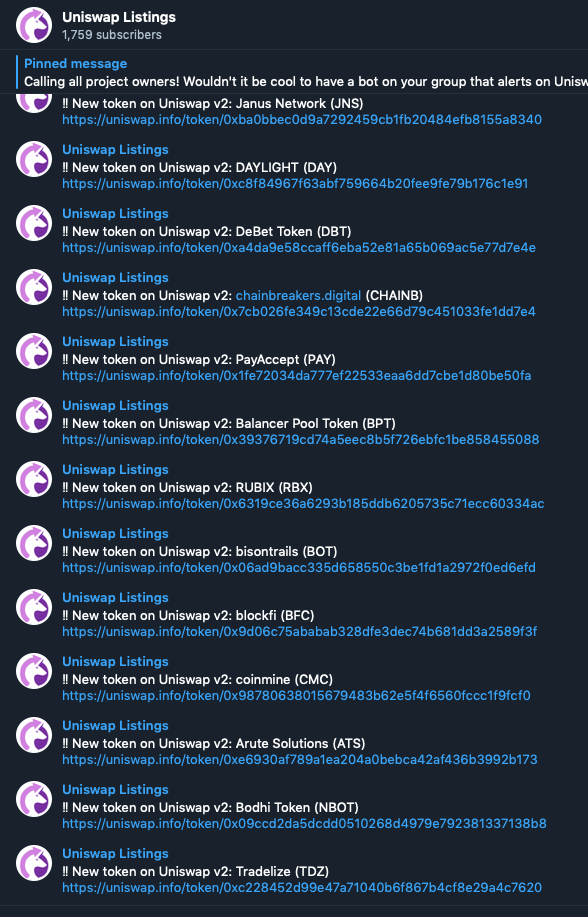DeFi Exchange Uniswap Is Being Swarmed With Scam Tokens
Uniswap's loose “listing” policy allows scam coins to impersonate legitimate DeFi projects.

Key Takeaways
- Dozens of fake coins have appeared on Uniswap, impersonating legitimate DeFi protocols.
- Any user can import a token and list a coin on Uniswap after pasting its address into Uniswap’s menu.
- 1inch.exchange, dYdX, bZx, and Tornado.cash are some of the companies whose fake tokens have been listed on Uniswap.
Share this article
Scam tokens impersonating legitimate DeFi projects have been running rampant on Uniswap, as the decentralized exchange (DEX) allows users to essentially import any token by pasting its address into Uniswap’s swap menu.
It is still unclear how many traders were scammed into trading with fake coins, as the exchange has no mechanism that prevents fake listings.
Watch Your Step on Uniswap
Automated liquidity protocol Uniswap has seen its popularity skyrocket in the past year, as more and more innovative DeFi projects get built on Ethereum. The protocol provides automated liquidity provision on Ethereum, driving what could be described as “unstoppable” liquidity for thousands of applications.
However, apart from thousands of new users, these features also seem to have attracted numerous scammers.
According to reports from DeFi Prime, there could be as many as a dozen coins on Uniswap impersonating legitimate projects and tricking users into swapping their funds with a worthless token.
Balancer, a non-custodial portfolio manager and liquidity provider, was among the first to notice the scam—the company warned its users about the Balancer Token (BAL) on Uniswap, saying it was not affiliated with the company.
The BAL token is the only contract that is valid for Balancer.
⚠️⚠️⚠️ The Balancer (BAL) token 0x6cb8… on uniswap is a SCAM. BAL has not been created yet ⚠️⚠️⚠️
We'll announce here when the official token gets deployed.
— Balancer (@Balancer) June 13, 2020
Curve Finance, an on-chain liquidity provider, also noted a falsified token on Uniswap, as they too still don’t have a token.
If you are wondering – Curve token is not out yet. If you see any in the wild – that's likely a scam
— Curve Finance (@CurveFinance) July 4, 2020
Tornado.cash, 1inch.exchange, dYdX, bZx, are just some of the DeFi protocols that have seen “their” coins listed on Uniswap.
Free for All Listing Process
The rise of scam coins on Uniswap is a direct consequence of the platform’s very loose listing protocol.
All tokens that have a deployed Uniswap exchange are supported on the platform’s front-end. That means that users can paste the token address into the search box and it will automatically populate the dropdown with the token.
For a token to be officially listed in the dropdown, an inclusion request on Github is required.
The problem has attracted the attention of many, with most agreeing that some kind of a threshold for listing needs to be put in place.
However, others argued that scams are a natural result of a decentralized and uncensorable system, adding that it was up to the user to do due diligence before interacting with the protocol.
The listing process on centralized exchanges is much more labor-intensive and usually includes a lengthy vetting process for each coin. The bigger and more regulated the exchange, the more rigorous its listing requirements are.
There are various bots on Telegram which are providing real-time updates of Uniswap listings, most of the coins are using popular names and are a fraud.

Uniswap is yet to comment on the issue.
Share this article
